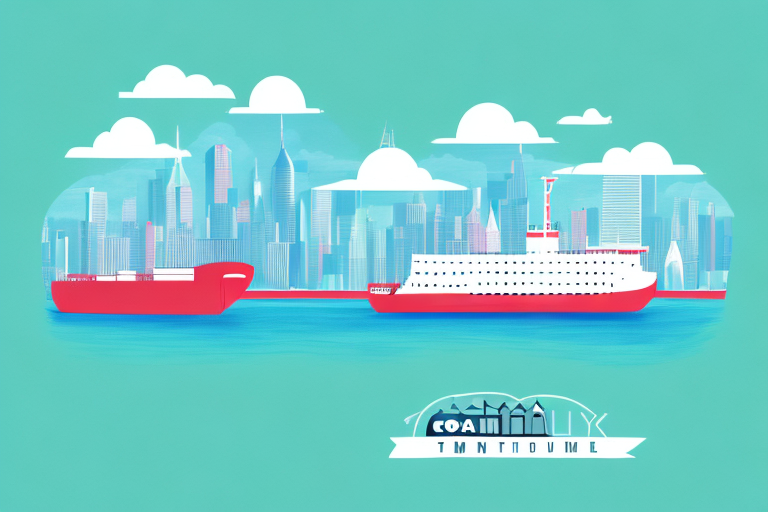Understanding the Role of the Federal Maritime Commission in Supply Chain Management
The Federal Maritime Commission (FMC) is an independent regulatory agency established by the United States Congress in 1961. Its primary mission is to oversee the American international ocean transportation system, enforcing regulations and laws that promote a fair and competitive industry. This article delves into the history of the FMC, its role in regulating shipping practices, its impact on supply chain management, its relationship with other government agencies, and the future challenges it faces.
What is the Federal Maritime Commission?
The Federal Maritime Commission is responsible for regulating the ocean transportation system in the United States. The FMC ensures that the maritime industry operates fairly and competitively, protecting the interests of consignors, consignees, and the general public. Key functions include:
- Reviewing and approving agreements between ocean carriers, such as vessel sharing and joint service agreements.
- Regulating tariffs to ensure they are reasonable and non-discriminatory.
- Providing dispute resolution services to mitigate delays and disruptions in the supply chain.
- Collecting and analyzing industry data to inform policy decisions.
History of the Federal Maritime Commission
The FMC was established in 1961 by the Shipping Act of 1961, replacing the Federal Maritime Board. The creation of the FMC marked a significant modernization of maritime regulation, granting the agency enhanced authority to address the evolving challenges of the industry. Over the decades, the FMC has been pivotal in:
- Ensuring fair competition and preventing anti-competitive practices.
- Protecting consumer and business interests within the maritime sector.
- Promoting environmental sustainability by encouraging the reduction of the shipping industry's carbon footprint.
The Role of the Federal Maritime Commission in Regulating Shipping Practices
The FMC wields broad authority over the ocean transportation system in the U.S., including:
- Licensing: Issuing licenses to ocean transportation intermediaries.
- Agreement Review: Evaluating carrier agreements to prevent anti-competitive behavior.
- Tariff Regulation: Monitoring and regulating shipping rates and charges.
- Safety and Security: Collaborating with agencies like the U.S. Coast Guard to enforce safety and security regulations.
By maintaining oversight, the FMC ensures a reliable and competitive ocean transportation system, benefiting both consumers and businesses.
How the Federal Maritime Commission Promotes Fair Competition in the Maritime Industry
The FMC fosters fair competition through stringent enforcement of antitrust laws, including:
- Investigating and addressing practices like price fixing, market allocation, and customer allocation.
- Reviewing carrier and marine terminal operator agreements to prevent monopolistic behavior.
- Providing education and guidance to industry stakeholders on compliance with antitrust regulations.
Collaboration with agencies such as the Department of Justice and the Federal Trade Commission ensures consistent enforcement of competition laws across industries.
The Impact of the Federal Maritime Commission on Supply Chain Management
The FMC significantly influences supply chain management by:
- Ensuring competitive shipping rates, which can lead to lower costs for businesses and consumers.
- Providing dispute resolution services that minimize supply chain disruptions.
- Offering valuable industry data that aids in strategic supply chain planning.
- Promoting environmental sustainability, which is increasingly important for sustainable supply chain practices.
According to a 2023 FMC Fact Sheet, effective regulation by the FMC contributes to the reliability and efficiency of global supply chains.
The Role of the Federal Maritime Commission in Setting Shipping Rates and Charges
The FMC regulates shipping rates and charges by overseeing tariffs and ensuring they are fair and non-discriminatory. Key responsibilities include:
- Tariff Regulation: Reviewing published rates to ensure compliance with regulations.
- Complaint Investigations: Addressing allegations of unreasonable or discriminatory tariffs.
- Monitoring Compliance: Ensuring ocean carriers adhere to U.S. laws and regulations, including environmental and safety standards.
By maintaining fair pricing structures, the FMC helps prevent market distortions and ensures that shipping remains accessible to a broad range of customers.
Understanding the Relationship Between the Federal Maritime Commission and Other Government Agencies
The FMC collaborates with various government agencies to ensure a cohesive approach to supply chain management:
- Department of Transportation (DOT): Coordinates on transportation safety and infrastructure funding.
- Customs and Border Protection (CBP): Works together to enforce customs laws and secure cargo entering the U.S.
- Department of Homeland Security (DHS): Partners on security measures for ports and waterways.
Internationally, the FMC engages with global regulatory bodies to harmonize standards and promote best practices in the maritime industry.
How to File a Complaint with the Federal Maritime Commission Regarding Shipping Practices
If you encounter issues with shipping practices, you can file a complaint with the FMC through various channels:
- Online: Visit the FMC's official website to submit a complaint form.
- By Mail: Send detailed documentation to the FMC's mailing address.
- By Phone: Contact the FMC directly for assistance.
When filing a complaint, ensure you provide comprehensive information, including bills of lading, invoices, and any relevant correspondence with the shipping company. Note that the FMC's jurisdiction is limited to international ocean transportation; for domestic shipping issues, other regulatory bodies may be more appropriate.
Future Developments and Challenges Facing the Federal Maritime Commission in Supply Chain Management
Looking ahead, the FMC faces several challenges that will shape its role in supply chain management:
- Technological Advancements: Integrating blockchain technology to enhance transparency and efficiency while addressing data privacy and security concerns.
- Climate Change: Developing strategies to mitigate the impact of rising sea levels and extreme weather on maritime operations.
- Industry Consolidation: Managing increasing consolidation among ocean carriers to maintain competitive markets.
- Global Trade Dynamics: Adapting to shifting global trade patterns and ensuring resilient supply chains.
The FMC's ability to navigate these challenges will be crucial in maintaining a robust and sustainable ocean transportation system. Continuous collaboration with industry stakeholders and other governmental agencies will be essential in addressing these evolving issues.
In conclusion, the Federal Maritime Commission plays an indispensable role in regulating the maritime industry, ensuring fair competition, and supporting efficient supply chain management. As the maritime landscape evolves, the FMC's proactive approach to regulation and collaboration will be vital in fostering a resilient and sustainable ocean transportation system.






















